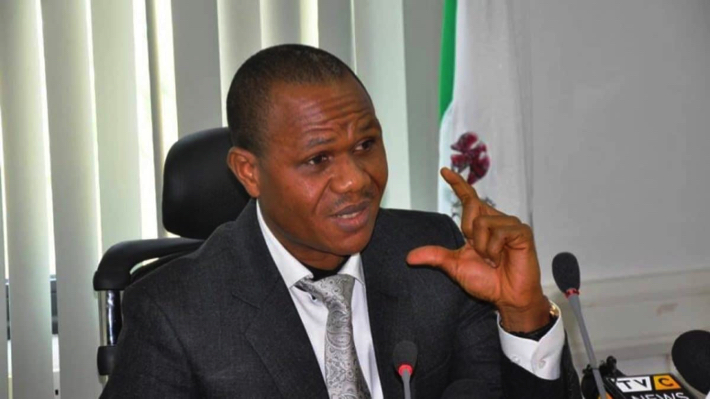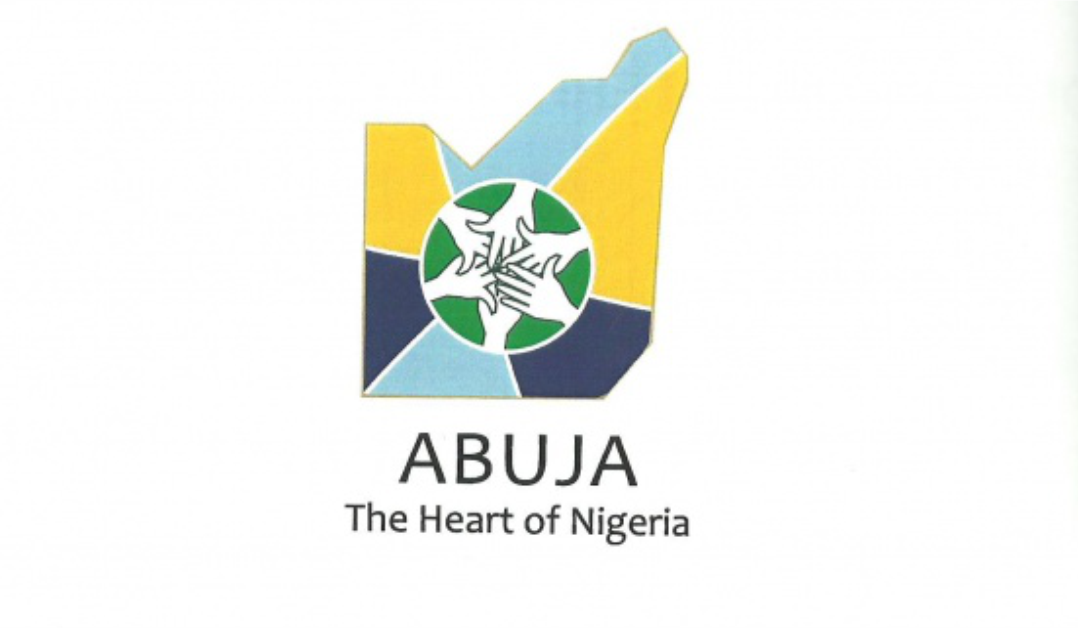SPECIAL: Years after MMM crash, Nigerians still fall victim to Ponzi schemes

What was anticipated to be the best of Yuletides soon became a gloomy one in 2016, as hopes of millions of Nigerians, including celebrities’ dreams of earning returns on investments, were shattered after Mavrodi Mundial Moneybox (MMM), by far the largest Ponzi scheme ever recorded in the country, announced that it was freezing all accounts, with many losing millions of naira.
Just as members geared towards their Christmas holidays, the scheme’s operators on December 13, 2016, said the freezing became necessary to “prevent problems during the Yuletide.”
“The reason for this measure is evident. We need to prevent problems during the New Year season, and then, when everything calms down, this measure will be cancelled,” MMM said.
But that was the last time Nigerians heard anything useful from the infamous Ponzi business.
A scriptwriter, Juwon Adekola, who invested thousands of naira in MMM, told Peoples Gazette that he decided to take the risk although he knew the scheme could be a scam.
“Before investing in it, I took it plainly as a risky gamble where I decided to put it all in to either double it up or face the loss like a financial fall,” he said. But when the scheme collapsed, he “moved on past it by working and not dwelling over it, as well as avoiding unnecessary conversations about the scheme.”
Nigerian blogger Noble Igwe was one of the thousands of Nigerians who lost their savings to MMM. In one of his social media posts, he said that he invested N16 million in the scheme after his barber convinced him.

Millions of Nigerians had disregarded the Central Bank of Nigeria (CBN) and Securities and Exchange Commission (SEC) repeated cautions against participating in the scheme, which came when the country was plunged into its worst economic recession in decades.
Section 38(1) of the Investments and Securities Act (ISA) 2007 prohibits the operation of Ponzi schemes.
The section provides that “no persons shall (a) operate in the Nigerian capital market as an expert or professional or in any other capacity as may be determined by the commission, or (b) carry on investments and securities business unless the person is registered in accordance with this Act and the rules and regulations made thereunder.”
In early 2017, the Nigerian Deposit Insurance Corporation (NDIC) estimated that about three million Nigerians lost N18 billion in the Ponzi scheme, founded by three brothers, Sergei Mavrodi, Vyacheslav Mavrodi, and Olga Melnikova.

The NDIC’s managing director, Umaru Ibrahim, who spoke at the 38th Kaduna International Trade Fair, described the scheme as “the phenomenon of illegal fund managers, popularly called ‘Wonder Banks’ which have continued to defraud unsuspecting members of the public of their hard-earned money.”
The mode of operation of the MMM requires investors to invest funds in the form of providing help, and they, in turn, get help with their investment and 30 per cent return in 30 days.
Several investors have been scammed of their hard-earned money by believing their funds would yield an unrealistic 100 percent or lesser return in a short time. Ponzi schemes promise high returns to investors with little or no risk.
Ponzi schemes, however, crash when many investors cash out, and it becomes difficult to recruit new ones. Not a few investors battled ill health after MMM’s crash. After the House of Representatives in October 2016 ordered an investigation into the operation of the MMM, the founder wrote an open letter to the federal government, accusing it of “constant attack.”
“You say that MMM is bad. Why? Yes, it produces nothing, but nothing gets out of the country either. The money is just redistributed among the citizens of Nigeria,” explained the letter. “It gets from those who are richer to poorer ones, in this way restoring social justice. What’s wrong with that?”
In June 2019, one of the administrators announced on Twitter that the scheme had relaunched, saying, “Great News……MMM is back and better! What we have all been waiting for is back supporting over 170 local different countries and is a peer-to-peer relaunched January 2019. Provide Help (PH) and Get Help (GH) Now!”
This time, many Nigerians who saw the tweet lamented how much they lost while investing in the scheme.
“My sister borrowed money from me to do this shit, and it crashed..na so my money entered voicemail till date… Carry your MMM and go mbok,” a user identified as @Rubysugs said.
MMM gave rise to other Ponzi schemes that surfaced afterwards, with many Nigerians falling prey despite losing huge sums of money. Ponzi schemes have since then remained popular in the country, with investors expecting unrealistic returns. Among them was Loom, considered a peer-to-peer pyramid scheme.
For Loom, participants create Whatsapp group chats, invest some money, and are expected to get eight times the value of money invested once they can recruit new members. Upon payments, they are to invite persons to join the system.

Former acting SEC director-general Mary Uduk, had declared Loom an “illegal outfit,” warning Nigerians against investing in it.
“We, therefore, wish to notify the investing public that the operation of this investment scheme has no tangible business model. Hence, it’s a Ponzi scheme, where returns are paid from other people’s invested sum. Also, its operation is not registered by the commission,” Ms Uduk had said in May 2019.
Apart from Loom, there were other online investment schemes such as Twinkas, Donation Hub, Get Help World Wide, Smile2Charity, Ultimate Cycler, Givers Forum, I-Charity, Crowd Raising, Clarrita, Help2Get, amongst other mushroom schemes, that collapsed shortly in recent years.
However, several others also sprang up with Nigerians falling prey and founders disappearing with their money. The schemes are MyBonus2u, RackSterli, Quintessential Investment Company, Inks Nation, and Wales Kingdom Capital Limited.
In June 2021, the EFCC announced it had arrested a couple, Emmanuel and Victoria Jaiyeoba, in Ibadan for defrauding investors in a N935 million Ponzi scheme. The suspects are parents to one Adewale Daniel, the Marketing Director, Wales Kingdom Capital Limited. According to the EFCC, the suspects defrauded victims in the guise of forex trading.
![EFCC Officials used to illustrate the story. [PHOTO CREDIT: The Guardian Nigeria]](https://gazettengr.com/wp-content/uploads/2020/10/EFCC-Officials.jpg)
One of their victims, identified as @therealasp01 on Twitter, said he lost about N4 million in the scheme.
“I’m in a mess presently. N4m into Wales Kingdom Capital & Quintessential, me thinking I was spreading my investments into reliable firms, since December, I’ve never been this low in my life. And not all are mine. I’m really clueless,” he tweeted in March.
Similarly, @Toheebadura, who was defrauded, stated that Wales Kingdom Capital and Quintessential Investment Company took all the money “I’ve ever gotten. EVERYTHING SINCERELY! I’ve been reduced to someone that lives on a cruise since then since suicide is never an option.”
Other Nigerians fell into hard times after the founder of another devious company RackSterli disappeared with their money. Several Nigerians were prompted to ‘invest’ in RackSterli after some celebrities, including Davido and Rema, promoted the platform, which offered 11 packages. The supposed firm was owned by one Chidi, popularly known as Blackgold.
“I have three accounts with Racksterli. They ‘japa’ (disappeared) with everything. One kobo I didn’t get. I registered with 27800*3=83400. I convinced my mom and 2 of my uncles. Omo, it dawned on me when the site crashed in November/December last year. My people wan kill me with insult. I don commot hand for ponzi,” a user @Jamiejason13 explained.
Upon its collapse, many investors demanded the immediate arrest of Davido and others who promoted the scheme in several videos on social media. “The only thing that can make me reason with Davido is if he refunds me my 112k Racksterli stole from me,” another so-called investor @Jamaal_miracle wrote.
In 2021, a young university graduate Emeka Richards joined one of the schemes known as the LPV forum.
“These guys share misleading ads, showing earnings of guys that they themselves employ to motivate them to deceive others into joining the scheme. They tell investors to read news comments. Some might say share to earn,” Mr Richards told The Gazette. He said he registered with N2,000 and was required to invite several others to pay the same amount later paid to existing ‘investors’.
“When you now join, they will now say you need to bring two or three people for you to withdraw. Although I collected my capital and a little profit, a lot of people lost their capital to the scheme,” added Mr Richard.
Many promoters of Ponzi schemes are usually one step ahead of enforcement agencies and their prey.
In November, The Gazette reported how a businesswoman Munachim Onyia who ran Muna Investment, allegedly swindled unsuspecting so-called investors. She had since been declared wanted by Interpol.

She swindled unsuspecting ‘investors’ of N5.3 billion. Social media accounts said while she was a student at the Kwame Nkrumah University of Science and Technology, Ghana, in 2015, Ms Onyia lured her fellow students into partaking in a Ponzi scheme in which many ‘invested’ their school fees in dollars. The 26-year-old businesswoman reportedly disappeared with her victims’ funds.
The Gazette had also reported how Nigerians who invested in Imagine Global Solutions Ltd were left stranded as a couple running the firm reportedly fled the country with funds invested by thousands of customers.
Another couple, Gloria Osei and Muyiwa Folorunsho, are still at large after their Ponzi scheme crashed in Lagos, leaving thousands of Nigerians to bear the brunt of billions of Nigerin naira that could not be recovered.

Nigerians like quick money: Experts
A professor of economics at the Olabisi Onabanjo University in Ogun, Sheriffdeen Tella, believes Nigerians will continue to fall victims because many like gambling and get-rich-quick schemes.
“Ponzi schemes have been in existence all over the world. There are people who believe in a shortcut to success, and operators of the schemes are aware that such people exist, so they use the opportunity to get them trapped,” noted Mr Tella.
While acknowledging the government’s efforts in ensuring that people no longer fall victim, Mr Tella said they still participate in Ponzi schemes with the hope that new ones may be different.
“Whether it is legal or illegal, people will still continue to participate,” he asserted.
He suggested that the government continue with the awareness campaigns through various channels, warning people to be careful.
“Although, many think the government infringes on their rights by warning them to desist from participating in those investment schemes until they fall victims. The government can get to interview those who have fallen victims on various channels. Perhaps, it will go a long way to prevent others from falling victims,” Mr Tella added.
Public affairs analyst Jide Ojo cited greed, unemployment, poverty, and worsening economic conditions as reasons Nigerians continue to put their money in Ponzi schemes.
“In a democracy, you enjoy certain liberty, and one of them is the right to do what you want. However, one thing you need to understand with Ponzi schemes is that it is a sign of poverty and unemployment; and a sign that the economy is in distress,” stated Mr Ojo.
He further mentioned that “people participate out of greed because many do not find out the kind of investment that will yield like 200 per cent return on investment in a few days or months depending on the modus operandi of the scheme.”
He stressed that people want to reap heavily where they sow little.
“I know the CBN has done a lot of advertisements, jingles, and others, but people have continued to stake money out of greed,” said Mr Ojo.
No hiding place
EFCC spokesman Wilson Uwujaren told The Gazette it is not relenting in its efforts to create awareness on Ponzi schemes.

“The commission has and will continue to enlighten the public with a view to discouraging them from becoming victims. That is aside from enforcement action against promoters of the fraudulent schemes,” said Mr Uwujaren.
Spokesmen for the police and SEC, Frank Mba and Efe Ebelo, did not respond to separate requests seeking comments on their efforts to tackle the menace. The CBN referred The Gazette back to its previous warnings over Ponzi operators.
We have recently deactivated our website's comment provider in favour of other channels of distribution and commentary. We encourage you to join the conversation on our stories via our Facebook, Twitter and other social media pages.
More from Peoples Gazette

Politics
Katsina youths pledge to deliver over 2 million votes to Atiku
“Katsina State is Atiku’s political base because it is his second home.”

Politics
Ondo APC accredited voters flee as violence rocks Okitipupa ward
The accredited members scampered for safety as violence broke out.

Lagos
Lagos moves against illegal estate developers in Epe
Mr Olumide said such investors may also risk losing their property or investment to demolition.

States
Ondo APC Primary: Large turnout, security at voting centres in Okitipupa
Mr Ebisanmi said that APC members were ready for the exercise.

Education
Ambassador underscores need for books promoting Nigeria’s interest
“They are books that every politician should have in his or her library.’’

Lagos
Police nab four men for stealing three tricycles at Lagos firm
Mr Hundeyin said that the company’s secretary reported that on Tuesday at about 7.00 a.m.

Agriculture
Council trains Imo farmers in cashew production for export
“Cashew holds a huge foreign exchange potential for Nigeria.’’








